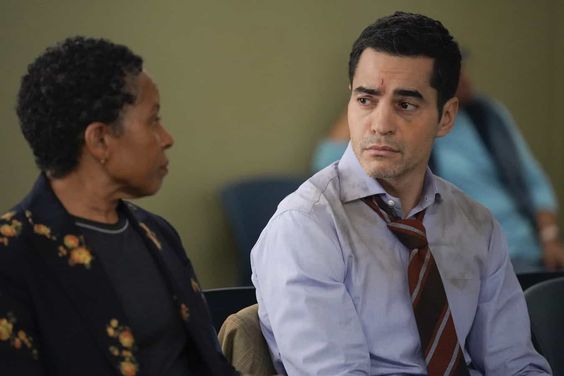
Why Will Trent’s Angie Looks So Familiar
The lead in ABC’s newest crime procedural, “Will Trent,” is played by actor Ramon Rodriguez. As an agent with the Georgia Bureau of Investigation, Trent can map crime scenes perfectly in his head. The talented, dyslexic detective then uses his skills to track down murderers and kidnappers in the Georgia area.
However, a major complication in Trent’s otherwise well-divided life is Atlanta detective Angie Polaski. The pair share a tragic past as both foster children and lovers. Rodriguez told Newsweek that he loved the agent’s complicated relationship with Polaski. “They have a very deep history together that dates back to their foster homes, and to this day, it’s a tumultuous relationship that works and doesn’t,” he said.
If the actress who plays Polaski looks familiar, it’s because she’s been in hit 2000s movies, co-starred on a beloved NBC show, and more. Here’s where you’ve seen this performer before.
According to BuzzFeed, Erika Christensen began acting at age 12. Her first role on IMDb was actually in the Michael Jackson music video for “Childhood,” but Christensen’s first film was the 1997 adaptation of the comedy classic “Leave It to Beaver.”
Christensen loved acting from a young age. “People are looking up to you, and I think it’s good to grow up with that,” she told BuzzFeed. “You should just act.” The young actress guest-starred in a number of comedies and dramas in the 1990s, including “Frasier” and “Touched by an Angel.” But her first major TV role was on the CBS satire “Thanks,” a sitcom based on early Puritans in the United States. Christensen played Abigail Winthrop in all six completed episodes before the show was canceled.
She later told BuzzFeed, “It was a pretty British comedy, and it didn’t work. It was a little too smart for its own good.” Despite the failure to find an audience, it was still a joy to work with legendary co-star Cloris Leachman. “She was probably exactly what you would imagine—she was just a wild woman,” Christensen said.
Playing the drug-addicted daughter of the nation’s “drug kingpin” (Michael Douglas) in a Steven Soderbergh thriller might have seemed like a risky move for another young actress. But Erika Christensen told Vulture, “When I was 15, I was so frustrated with just being the cute girl next door.” She turned out to be the perfect choice to appear in the 2000 drama “Traffic” as Caroline, a stressed-out honors student who finds escape—and eventual addiction—in cocaine and heroin use. The actress had to research drug use because, as she told Hollywood.com in 2000, “I had no experience with drugs.” “Traffic” was the kind of complex role Christensen wanted. “I had a few little opportunities to be like, ‘Yeah, thanks, let me try something,'” she said. It was also a good career choice: the critically acclaimed film won four of the five Oscars it was nominated for and gave Christensen her strongest film role to date. But it was her next big film that would put her front and center.
If you or someone you know needs help with addiction issues, we’re here to help. Visit the Substance Abuse and Mental Health Services Administration’s website or call SAMHSA’s National Helpline at 1-800-662-HELP (4357).
Erika Christensen was originally cast as the girlfriend Amy, later played by Shiri Appleby, in the 2002 teen erotic thriller “Swimfan” (via Vulture). But she also wanted to move her career forward after the dark events of “Traffic.” She told Vulture, “I remember meeting with director John Polson and saying, ‘I know how to play Madison, that’s what I want to do.’ And then they were like, ‘Okay.’”
So Christensen landed the role of Madison Bell, a beautiful, obsessive high school stalker, opposite Jesse Bradford as her hapless prey, Ben. At the time, Christensen was captivated by the character’s sheer delusion: “I was like, ‘She thinks she’s right at every stage of this story.’”
The film received overwhelmingly negative reviews from critics at the time, but Christensen says she still talks about “Swimfan” because, well, fans. “And now people just say, ‘I love that movie,’ or ‘I really appreciate how that movie was something different. It wasn’t what the teen movies were doing.